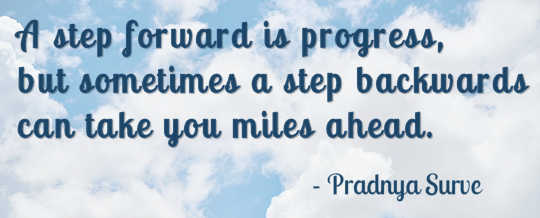You may have seen this riddle running around the internet:
It’s 3:00 am. Your doorbell rings. Unexpected visitors! It’s long time friends, and they are hungry for some breakfast. You have strawberry jam, honey, wine, bread and cheese. So what is the first thing you open?
Here’s one that’s similar, but is perhaps more appropriate for an audience of health advocates:
It’s 3:00 am. Your doorbell rings. It’s your neighbors! One is clutching his chest and screams, I’ve been shot! The second one is holding her thigh and says, I’ve been shot, too! What’s the first thing you do?
We’ll score you on a scale from 0 to 4, based on the following (no cheating!):
- 0 points if you said you would not open it, or would just shut your door.
- 1 point if you said you’d help the woman who had been shot in the leg.
- 2 points if you said you’d help the man who was clutching his chest.
- 3 points if you said you would grab your phone and dial 9-1-1
- 4 points if you answered, “I would open the door” – and a bonus point if you said: “I would get out of bed to answer the doorbell.”
So how did you do?
With the exception of the first one (shutting your door) all the answers reflect some degree of being good answers.
90% of you will get 1, 2 or 3 points – because, as advocates, we are used to, and embrace the role of taking care of situations, especially when emergencies pop up. We love rescuing people, especially our clients, to improve whatever problems have befallen them. That’s one reason we have chosen advocacy as a career.
But sometimes, our reactions are just that – reactions. They come from habit and training. Unfortunately, REACTING can get in the way of being a successful practice owner. Instead, we need to learn to take a Step Back to be sure we are doing the right thing in order to keep our businesses healthy and to best serve our clients.
Our quick advocate reaction to the scenario described is to take care of those people – to try to fix them quickly.
But the best answer (remember – it’s a riddle!) is to “get out of bed” or “open the door”. First things first.
Granted, the chances of being faced with this particular scenario are, thankfully, slim to none. But every day we are being asked to make judgment calls that require us to think critically, to use common sense, and to make an assessment of a situation before we act.
Unless we resist the fast reaction, and take a Step Back, it can create problems not just for our clients, but for our ability to stay in business, too.
Here are some examples:
- Your client has been diagnosed with cancer and is upset and worried as she faces first surgery, then months of chemo. She wants your help to figure out the many details that need to be worked out during that time. Taking a Step Back would mean you would arrange for her to get a second opinion, then work through the Shared Decision Process to determine if that treatment is what she really wants.
- A potential client calls you, lists a litany of problems she’s having getting the care she needs, and you react by saying, “Have you tried this?” or “We could try this approach….” Those responses are your attempt to help her fix her problem. Then you wonder why she didn’t want to hire you! But why should she? You’ve already told her how to fix her situation. Taking a Step Back means you assure her you can help her – but you don’t tell her how you’ll do that. Instead you engage her in a contract, THEN tell her how, together, you can solve her problems.
- A potential client phones, tells you about the simple procedure he underwent, tells you the sum on the bill he received, and asks you if you can fix the errors. Sure! you say…. that’s what we do! But it may turn out that there aren’t errors at all – the bill is just very high and seems out of whack to the client. Your review results in no adjustments, and he’s upset with you – he doesn’t think you’ve done what he paid you to do! Stepping Back would help you explain to him prior to making promises that you’d be happy to review the bills, identify any errors, and IF errors exist, you’ll be happy to negotiate with the provider or facility.
- A client claims she needs a certain test or procedure and the insurer won’t approve it. You tell her that’s your specialty area – obtaining approvals from insurers. She hires you – and THEN you learn that the test is simply a test that client wants, one she read about on the internet, but nothing the doctor has requested. Her real problem is that she has undiagnosed symptoms. The help she needs is about getting a diagnosis, not an approval for a test. Taking a Step Backward you would have identified the real problem early on, and would have referred her to someone else would could help her instead of wasting your own time through the assessment, contract and payment steps required in taking on a new client.
- You are contacted by the adult daughter of an elderly man who lives in your neighborhood and needs immediate help. She is truly upset, and describes the urgency of her father’s need. You reassure her, you assess the situation, you tell her what it’s going to cost, she assures you that her dad has the money and you will get paid. You take care of her father, and send an invoice, but- you guessed it – you can’t get paid. The father has died, the daughter is distraught, the money is tied up in his estate, and because her expectation (spoken or unspoken) was that calling you would prevent her father’s death – she is now refusing to pay you. A Step Back would have helped you do a better job of managing her expectations, and would have required payment before you started your work.
You can probably think of a dozen more. You may have experienced a dozen more!
Taking a Step Back is an important part of being a business owner. It requires you to stop reacting and start assessing in a measured, business-healthy way. It may be a new habit you must develop, but when it comes to growing and strengthening a private advocacy practice, it’s as important as anything else you’ll do.

. . . . . . . . . . . . . . . . . . . . . . . . . . . . . .
LEARN ABOUT APHA MEMBERSHIP | FIND MORE REASONS PATIENTS NEED ADVOCATES
. . . . . . . . . . . . . . . . . . . . . . . . . . . . . .





What a great blogpost! That “riddle” really illustrates the point, Trisha. I know I am guilty of reacting then assessing later.
Amen to Trisha’s post! Good advocacy requires an equal balance between meeting the client’s needs and managing the client’s expectations. In my legal practice, this second task is often referred to “client control.” That’s a rather blunt way of saying that you must actively work to keep your client’s expectations within reasonable boundaries. You don’t want clients with an unreasonable agenda — because such clients inevitably turn on you.